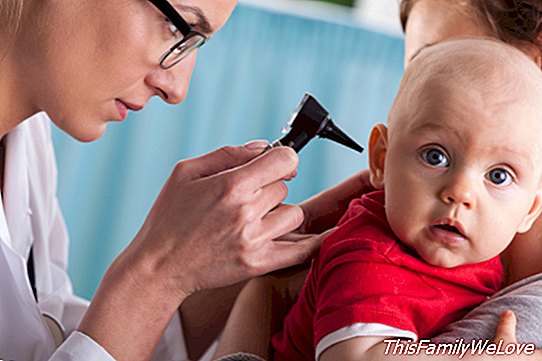Childhood diseases: what should be communicated at school?
Children's schools and schools are favorable places for the rapid spread of diseases. In addition, young children with an immune system still in development are especially prone to infection. For this reason, we parents must know what are thediseases that can be contracted in the school and that they should not cause us alarm, and what are we to communicate in school for being especially annoying, serious or even deadly for children.
Dr. García-Sala, pediatrician of the Spanish Society of Extra-Primary Care Pediatrics, recommends "doing an awareness-raising work for children to take care of their hygiene, but as a habit or routine, they should wash their hands frequently to avoid the spread of many diseases by contact ".
Childhood diseases that should be passed
In the opinion of this doctor, "there are many diseases that can be contracted in school at school time and that should not cause us alarm.As a general rule, your child will pass some of these diseases throughout the year. Passing them will improve your immune system that will create antibodies for these diseases. If you see that you are weak or have a fever, leave him at home until he gets better. "

The common diseases that do not need to be communicated in school or school are herpangina and hand-foot-mouth disease, colds and pharyngitis, gastroenteritis, ear infections, roseola or sudden exanthema and conjunctivitis. According to Dr. Garcia-Sala, "these diseases are common and do not need to be communicated to other parents or the school." No one would go in their own work communicating to each other that has conjunctivitis, otitis or diarrhea. and the precautions to try not to infect anyone. "
Illnesses that must be communicated at school
They should also notify the school, and this to the rest of the parents, especially annoying pictures such as lice and particularly diseases such as meningitis, measles, mumps ... even chickenpox, which are infections that can be serious or life-threatening . Fortunately, most children are vaccinated for these diseases, but unfortunately not all of them are vaccinated and it is better to prevent them.
Lice
They are quite annoying parasites that are acquired almost randomly since they have nothing to do with hygiene, socioeconomic status or lifestyle habits. Moreover, they show a preference for clean hair. "In the event that our children have lice is enough to treat and inform the school, without absenting from classes, to prevent infection from infectious to cyclically infectious.For treatment is sufficient to use a protective product," confesses the doctor Jesús García Pérez, member of SEPEAP.
Meningitis
The most severe meningitis is caused by bacteria; among them, the meningococcus. This may have different "surnames" (or serogroups), with B being the most frequent in Spain.
Meningococcal infection occurs through the respiratory tract, through droplets that are expelled when coughing or sneezing. The greater and narrower the contact with an infected person is, the easier it is to spread, so the most favorable environments for transmission are school and family environments. However, the contagious capacity of meningitis is not as high as that of a cold or the flu.
Measles
It is a benign disease due to a virus that affects young children. It is characterized by high fever followed by a rash on the skin. This disease can become serious and is spreading in recent years in Europe due to the decline in vaccination coverage. Measles is prevented with the MMR vaccine. With two doses a protection of 99% is reached.
Mumps
It is a contagious viral infection that mainly affects the glands that make saliva, which become inflamed and painful. The largest of these glands, the parotids, are just in front of the ears and extend somewhat downwards; there are also others located below the jaw.
It is usually a mild disease and does not leave sequels, but sometimes it can be complicated by meningitis with benign characteristics or inflammation of the pancreas or testicles. The involvement of the sexual organs only exceptionally produces sterility. Before, when there was no vaccine, it was also a cause of permanent unilateral deafness.
Chickenpox
The chickenpox It is an infectious disease that produces a very characteristic rash. The cause is the varicella-zoster virus, so called because it is also the cause of herpes zoster.
Chickenpox is very contagious, so that, when there is a sick person in the house, 80-90% of the people who live there and did not suffer it before, end up contracting it. It is transmitted through direct contact with skin lesions or through droplets of saliva that are expelled with a cough or sneeze. Patients are contagious approximately 2 days before the rash appears until all the skin lesions have become scabs, a process that takes about a week.
Marisol Nuevo Espín
Advice: Dr. García-Sala, pediatrician of the Spanish Society of Primary Care Extraholspitalaria Pediatrics
It may interest you:
- Children in the nursery: 10 febrile processes per year
- How to control gastroenteritis in children and babies
- Lice: the 10 most frequent doubts to eliminate them
- Meningitis in children: the vaccine is essential
- Complications of measles, symptoms and vaccine
- Varicella, treatment for children




